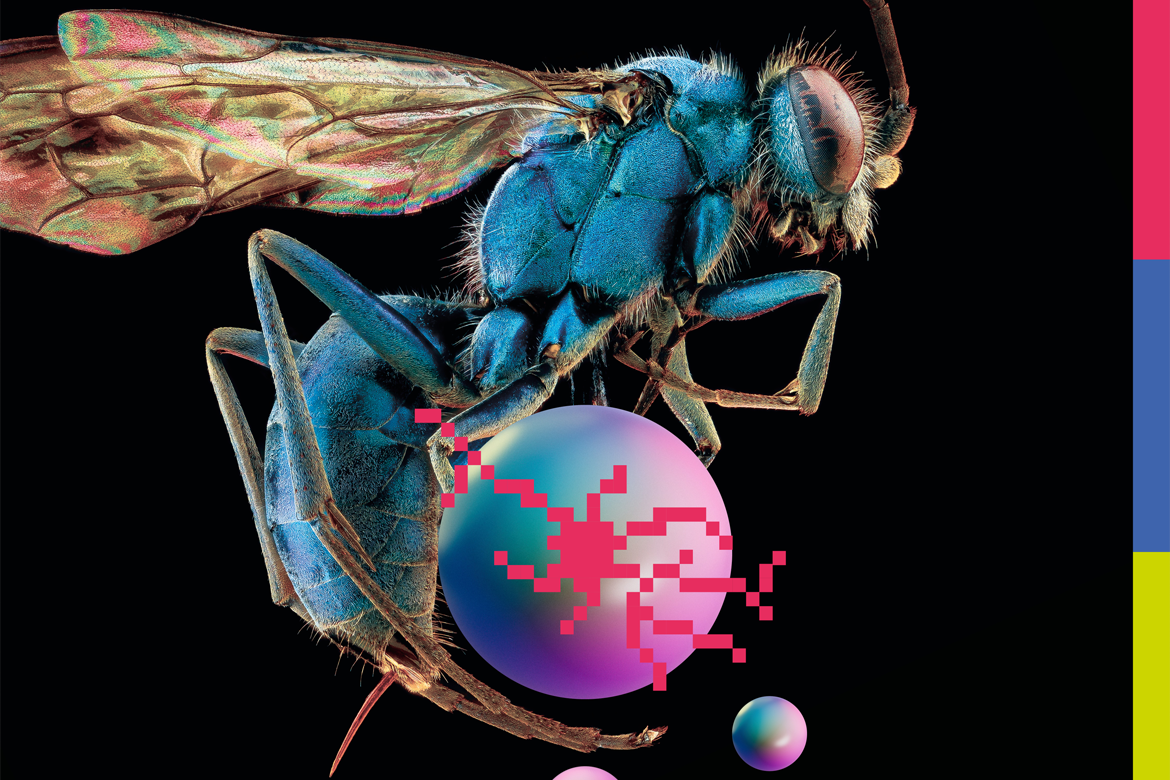“It’s been so long since you disappeared.”
Teeth of the Sea are a group that have become leaner over the years, now trimmed down to a trio of jamming-soundscapers. Most of the noise comes from the electronics that lay the basis of their psych jams, with club style rhythms and arps. Jimmy Martin mostly plays a flying V guitar into loopers, not afraid to sound like a guitar hero at times. Completing their unique feel is frequent usage of trumpet, as the moment requires. Hive is their new LP, resuming their service after the post-2020 years, presenting psychedelia with a bite.
Starting with the record’s strengths, each of the member’s sounds are direct – you can always tell who’s doing what, in a way that is quite freeing compared to other electronic fusion artists. It’s down to earth and feels fully live. It’s also a record with many moods, from dark to bright. The light end of this spectrum can be found on three songs commissioned by the London Science Museum for an Apollo documentary (“Artemis”, “Aether”, and “Apollo”). They all have a cuddly feel to them with their simple wind and guitar motifs; visions of educational VHS tapes your school teacher used to put on when they had a headache. “Apollo” is the strongest and makes for a particularly good ending for Hive. The record has darker moments like “Liminal Kin”, which explores electronics more deeply without rising to a specific tradition. Stumbling, echoing snares, a creepy guitar lead, and bit-crushed trumpet makes the track effective, including its brief, lighter outro.
Hive’s use of electronics has a simple, brash quality; relatively few different elements are used, and the textures are cutting. You can see this working best on “Megafragma”, built upon a bass register arpeggio that will max out your sub, leaving space above for a lengthy psychedelic jam. It’s like a bad trip in a busy kitchen with clanging pots and pans that cycle around the head. There aren’t enough different ideas to fill all nine minutes of the track with value, making it an odd choice for lead single, but it’s probably a good springboard for experimentation when the band is jamming, and that improv feel comes across well.
The next single was “Butterfly House”, and takes the simplicity too far, with too few ideas doing no favours for a rather uninspired vocal feature. The guitar licks have some creative use in the verses, juxtaposing the vocal takes, but they harken to a certain 80s feel that hasn’t wrapped back around to being cool in my book. “Get With The Program” is a bit stronger, starting with queasy arpeggio that is rescued by another synth that rocks the bass register sufficiently hard. Here, the vocal feature is more ignorable, but I’d still rather hear Teeth of the Sea doing fully instrumental work. “Powerhouse” is another dud, trying to marry sci-fi synths with a cowbell-clapping beats and a corny bassline. It does transition the mood into “Apollo” quite well where the disparate sounds agree again.
I respect Teeth of the Sea’s adherence to their live sound on this release. Most producers would go through these songs with a fine comb, adding detail where it feels missing, or over-treating the instruments to make the overall sound more cohesive. Hive instead sounds like three experienced musicians bonding through lush, structured jams, speaking a language only they know. I have found it to be less delicate than their prior records like Wraith, particularly when the electronics and guitar are at their most unsubtle. Five of the eight tracks are well worth your time, and Hive certainly documents a live act worth chasing here.
6/10
Teeth of the Sea’s Hive releases through Rocket Recordings on the 6th October, and can be pre-ordered here.

